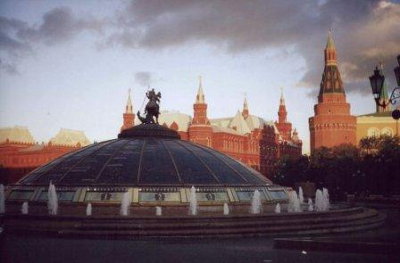Category: "Uncategorized"
Писатель
Alexander Pushkin is a писатель. Franz Kafka is a писатель, and so is Hemingway, along with that lady who wrote “Twilight.” The word писатель derives from the verb писать (write) and as you might have already guessed, is translated as writer. Писатель is a masculine term used to refer to male writers and писательница refers to female writers. But nowadays it’s not unusual to hear a woman be called a писатель.
| Sg | Pl | |
| Nom | писатель | писатели |
| Acc | писателя | писателей |
| Gen | писaтеля | писателей |
| Pre | писaтелe | писaтеляx |
| Dat | писaтелю | писaтелям |
| Ins | писaтелeм | писaтелями |
One of the best-known and most controversial писателей of the twentieth century, Vladimir Nabokov, at work.
| Пауло Коэльо является одним из самых популярных писателей нашего времени. | Paulo Coelho is one of the most popilar writers of our time. |
| При жизни ирландский писатель Брэм Стокер был малоизвестен, но теперь все знают его произведение «Дракула». | During his life Irish writer Bram Stocker was fairly unknown, but now everyone knows his work “Dracula.” |
| Я никогда не думал, что Кирилл станет таким хорошим писателем и напишет столько книг. | I never thought that Cyril would become such a good writer and write so many books. |
| Oн необычный писатель c интересными идеями, но, к сожалению, не может найти издателя для своих произведений. | He is an unconventional writer with interesting ideas, but unfortunately he can’t find a publisher for his works. |
Крыша
Having a good крыша over one’s head is one of the core necessities in life. Without a real крыша, people seem to be vulnerable and weak, stripped of basic protection from the unpredictable weather and exposed in every way to the dangers of the suddenly harsh, surrounding world. Anyway, enough with the obvious… the word крыша is translated as roof.
If you do something outrageously dumb, like smoke a cigarette at a gas station, your shocked Russian friend might yell out at you: “У тебя что, крыша поехала?!” The idiom крыша поехала (roof is moving) is an abrupt way of saying that you’re not thinking right at the moment, that you’re out of your mind and have gone crazy.
The term крыша can also be associated with the criminal world. A couple of low-tempered brutes dressed in tracksuits come into a private shop, declare that they are the proprietor’s new крыша and threaten to bring havoc to the place, unless they start receiving a certain amount of money on a regular bases. To put it simply, the thugs are muscling the owner into paying protection money. So крыша can refer to “protection” by a crime organization, and hopefully you'll never have to encounter this word in that particular context.

Image from 4rent.ru
The roof of the Охотный ряд (Hunter's Row) underground shopping mall located in the heart of Moscow, on the Red Square.
| Каждую субботнюю ночь кто-то ходит по крыше моего дома. | Every Saturday night someone walks on the roof of my house. |
| Эдвард Р. Мэроу вещал с крыш Лондонских зданий во время воздушных нападений. | Edward R. Murrow would broadcast from the roofs of London buildings during air raids. |
| K Андрею в бар зашел подозрительный господин в черном костюме и заявил, что он будет его новой «крышей». | A suspicious looking man walked into Andrei's bar and declared that he will be his new "roof." |
| Mы должны были встретиться на крыше этой гостиницы в семь часов утра, но она не пришла. | We were supposed to meet on the roof of this hotel at seven o'clock in the morning, but she didn't show. |
Шапка-ушанка
In Hollywood movies, it seems as if all Russian men wear a distinct, funny-looking winter fur hat with two goofy earflaps tied together at the top. If this doesn’t ring a bell, just watch one of the older James Bond films, Rocky IV, Armageddon or The Hunt for Red October. Popularized by Hollywood and made into a stereotype image of the Russian man, this hat is a highly demanded souvenir that almost every other tourist brings back. But aside from the stereotype of these hats, what does a Russian actually wear in winter? For better or for worse (probably for better), it so happens that a lot of Russian men do indeed wear this exceptional headpiece. The winters get a bit cold and the thick fur will keep you warm, especially if you tie the earflaps around your chin.
Шапка-ушанка can be translated as ear-flap hat. The word шапка is translated as hat, while the word ушанка doesn’t really have a real translation. It is used to identify the earflaps and derives from the noun уши, which means ears. In the West, people sometimes simply refer to the hat as ushanka. An ushanka can get a bit pricy if it’s made out of sable or mink, so fox tends to be the choice for those with a thinner wallet.
I’ve mostly stuck with beanies, but I do have to admit that the ushanka is one of the better inventions to come out of the Motherland, and I do own one. It was created in the cold and for the cold. Nowadays, you can occasionally spot Russian ushankas on random, crazy-looking snowborders racing down the steep slopes of the Rockies.
The Governator, Arnold Schwarzenegger, wearing an ushanka in the film Red Heat.
.
Another example of the Hollywood stereotype of a Russian. Here we have the drunk cosmonaut Lev Andropov in an ear-flap hat from the film Armageddon.
Here are some example senternces:
| Я люблю свою ушанку, потому что мне в ней тепло зимой. | I like my ear-flap hat because it keeps me warm in the winter. |
| В армии и на флоте солдаты и моряки носят эмблемy красной звезды на своих ушанкax. | Soldiers and sailors in the army and the navy wear the red star emblem on their ear-flap hats. |
| Cолдаты и милиционеры носят ушанки в зимнее время. | Soldiers and police officers wear ear-flap hats in the wintertime. |
| Mой дед купил новою шапку-ушанку, потому что его старую съела моль. | My grandfather bought a new ear-flap hat because his old one was eaten by moths. |
Америка
Back in July I thought to myself, “I should just open the very first chapter of the Russian textbook I'm currently teaching from and blog on the very first word of the very first vocabulary list.” It turned out that the word was Америка. What the hell? The very first word in the the very first vocab list of a Russian language textbook is America? Is that not ironic beyond words?
Still, it struck me as a challenge, so let's discuss that world-dominating, hated-by-terrorists, hoped-for-by-the-immigrant, subjected-to-the-mockery-of-its-own-citizens noun. In terms of declension Америка is a perfectly regular second declension noun (once you know spelling rule #1), so what can you say about it that would be interesting?
Actually, there is one interesting phrase the Russians use that may surprise Americans, and that's «я не открываю Америку» “I'm not discovering/revealing the New World.” They use it in the sense of “I'm saying the obvious” or “this is no big surprise” or “it's not a big deal”:
| Ну, конечно, я вам не открою Америку, когда сообщу, что англичане совсем не умеют готовить пищу. | Of course, I'm not telling you anything you don't know when I say that the Brits simply don't know how to cook. |
| Петя сказал, что Зое нравятся цветы. Конечно, этими словами он не открыл Америку, но я был благодарен за то, что он мне напомнил, а то я бы забыл о её дне рождения. | Peter said the Zoya likes flowers. Of course, he wasn't telling me anything new, but I was grateful for the reminder, otherwise I would have forgotten her birthday. |
| — Я заметил, что мексиканцы очень весёлые пьяницы, а финны пьяные всегда злятся. — Тоже мне, открыл Америку. |
“I've noticed that the Mexicans are very cheerful drunks, whereas the Finns get mean when they drink.” “Yeah, you're a real genius.” |
The «тоже мне, открыл Америку» in the last sentence is a funny one; I have yet to meet a Russian who can quite explain it to me, but it's roughly the equivalent a sarcastic “you're a real genius.”
Автобус (часть первая)
The word for bus in Russian is автобус. Public transport is well developed in major Russian cities, much better than its counterpart in the sprawling cities of the American West. Russians regularly ride buses all over the country, and Russians visiting the US expect the same services to be available here. After all, a bus is fairly low-tech, so the Americans must have them all over the place, right? Imagine the surprise of my acquaintance Natasha, then, when she wanted help getting from Los Angeles to Denver. She figured that buses were cheap, so she could probably make the trip quickly and cheaply. Alas, that was cross-cultural ignorance. The trip from LA to Denver would have taken twenty-two hours, and it would have been more expensive than a plane ticket. I told her to grab a plane flight. Sure enough, for -less than- a bus ticket, she got to Denver by plane.
In America people smile to indicate that they are not currently hostile toward the person they are talking to. So a cashier in a grocery store smiles at the customer she talks to. A security guard smiles at a person he doesn't intend to be rude to. An IRS agent smiles when you walk up to him to ask a question because he is trying to make you feel comfortable.
Russia is not like that. Former students of mine have gotten on the bus in Russia, laughing and chatting, only to have one of the бабушки old ladies say:
| В автобусе не улыбаются. | You shouldn't smile on the bus.¹ |
Despite the lack of smiles the buses in Russia are überconvenient. They, along with the streetcars, electric buses, and subway, will take you wherever you need to go. You simply don't need a car to get around in Russia. So what are the phrases you need to describe your bus activity? Here we go:
| Я сел в автобус. | I got on the bus. |
| Я вышел из автобуса. | I got off the bus. |
| Я поцеловал двух девушек в автобусе. | I kissed two girls on the bus. |
| Я поехал с Воробьёвых гор до Красной площади на сто одиннадцатом автобусе. | I rode from Sparrow Hills to Red Square on bus number one eleven. |
¹ In this context the они form of the verb is used without the actual pronoun они to be functionally equivalent to a “you shouldn't” sentence.
<< 1 ... 25 26 27 ...28 ...29 30 31 ...32 ...33 34 35 ... 41 >>


